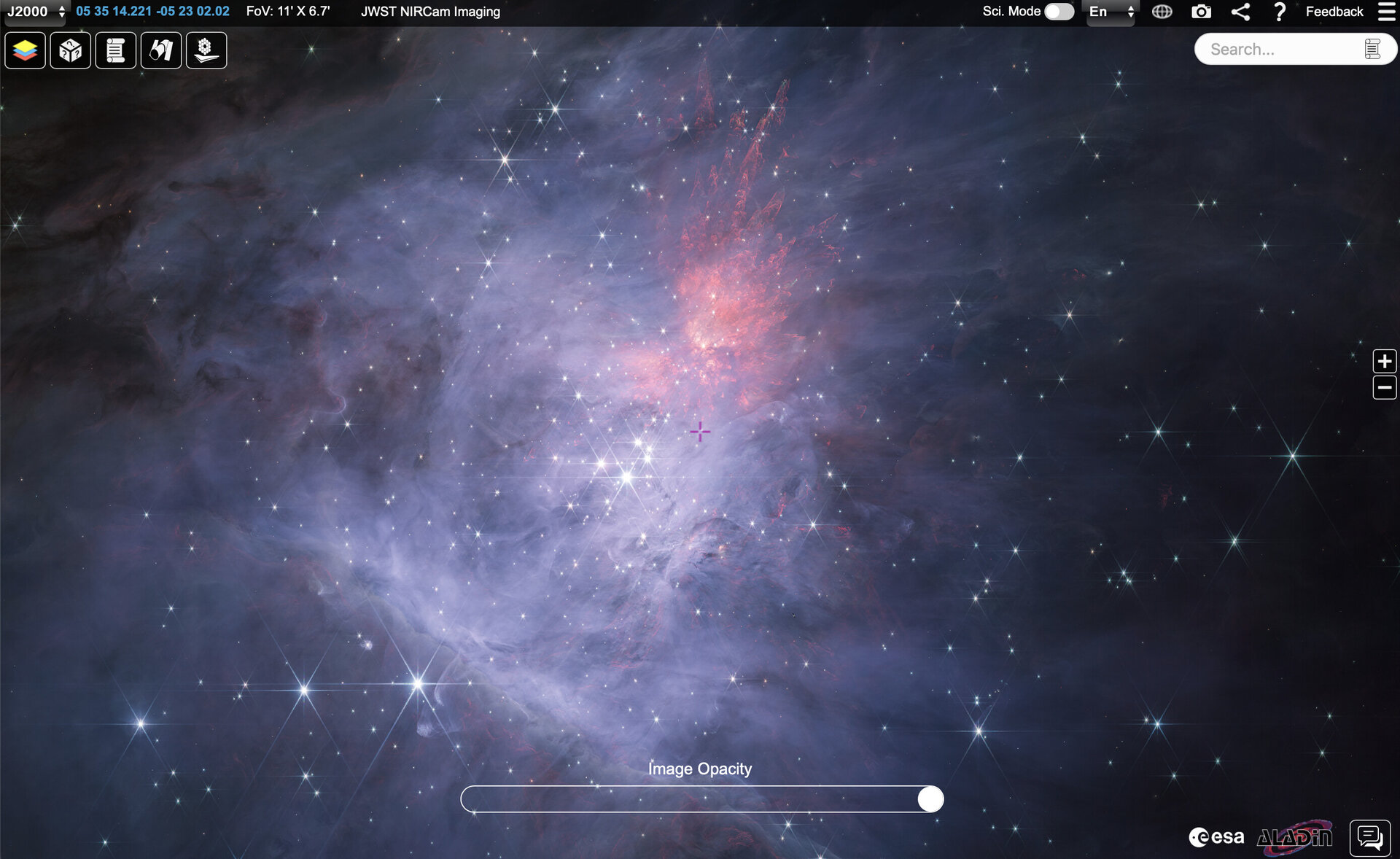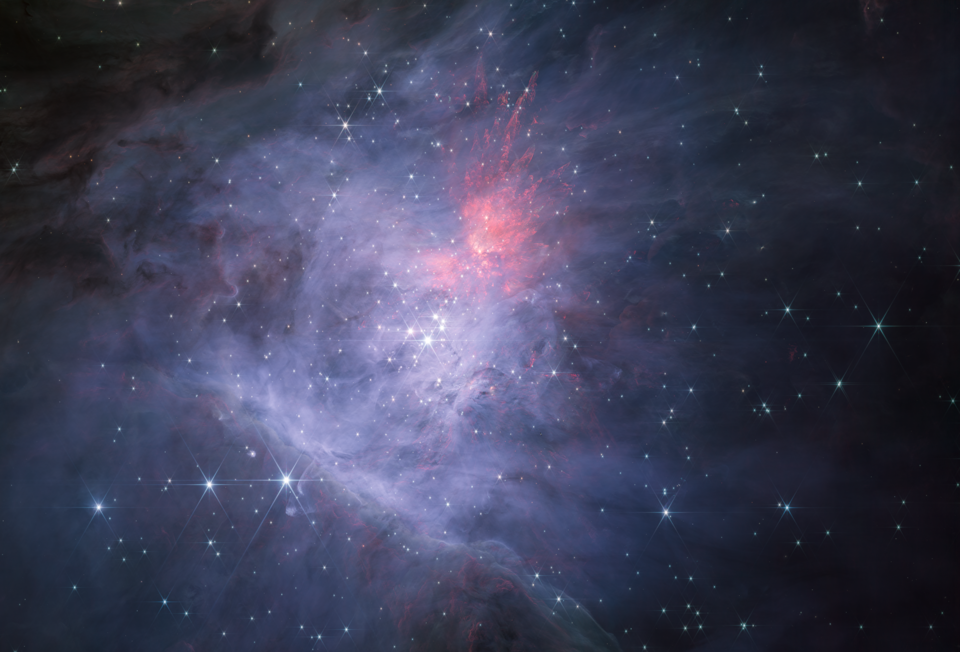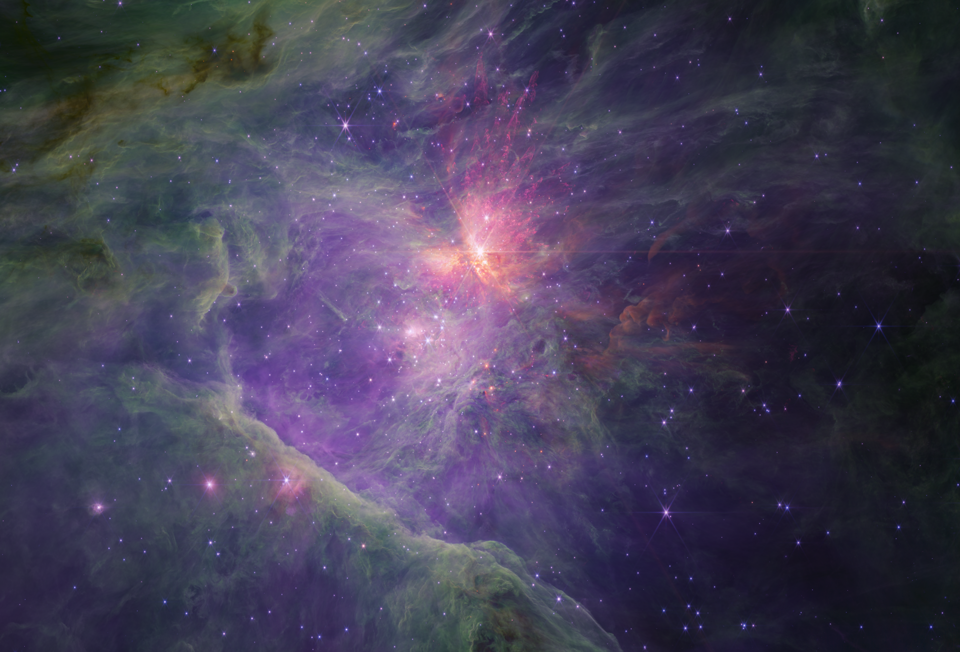Webb’s wide-angle view of the Orion Nebula is released in ESASky
New images of the Orion Nebula from the NASA/ESA/CSA James Webb Space Telescope have been included in ESA’s ESASky application, which has a user-friendly interface to visualise and download astronomical data.
One of the brightest nebulae in the night sky is Messier 42, the Orion Nebula, located south of Orion’s belt. At its core is the young Trapezium Cluster of stars, the most massive of which illuminate the surrounding gas and dust with their intense ultraviolet radiation fields, while protostars continue to form today in the OMC-1 molecular cloud behind.
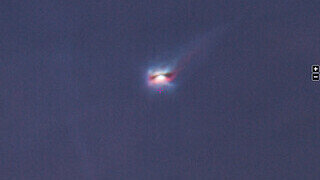
The nebula is a treasure trove for astronomers studying the formation and early evolution of stars, with a rich diversity of phenomena and objects, including: outflows and planet-forming disks around young stars; embedded protostars; brown dwarfs; free-floating planetary mass objects; and photodissociation regions – the interface regions where the radiation from the massive stars heats, shapes and influences the chemistry of the gas.
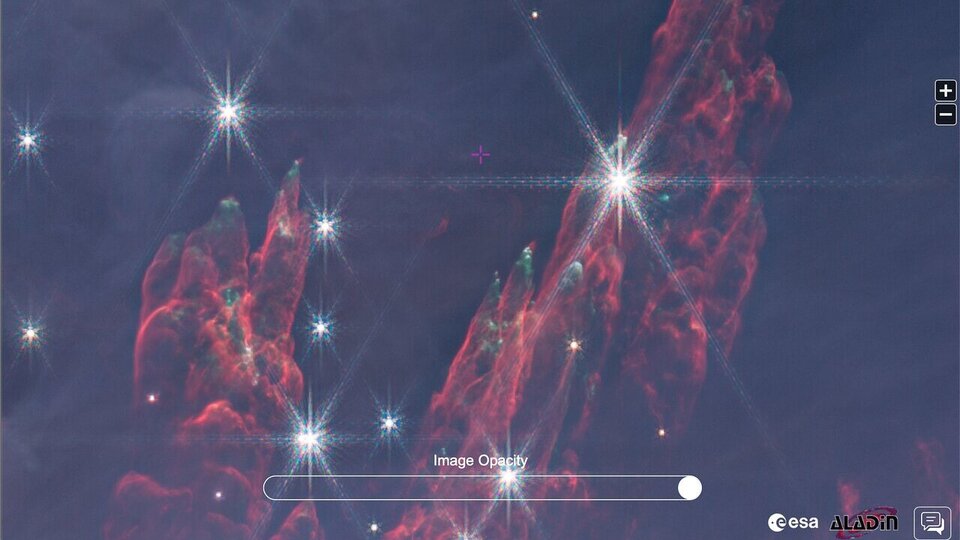
The new imaging was obtained with Webb’s near-infrared camera, NIRCam, and has been made into two mosaics, one each from the short and long wavelength channels. These are among the largest Webb mosaics observed to date and given the high resolution and large area, they have been incorporated in ESASky to enable easy exploration of the plethora of interesting astronomical sources contained within them. The short-wavelength mosaic maximises Webb’s angular resolution to reveal beautiful details in discs and outflows, while the long-wavelength one showcases the intricate network of dust and organic compounds called polycyclic aromatic hydrocarbons. We encourage you to explore these images to see what hidden treasures you can find!
The science data were obtained as part of the Webb Cycle One programme #1256.
ESASky
Explore the images in our ESASky application where you can pan and zoom and discover interesting objects
Orion Nebula in NIRCam short-wavelength channel on ESASky
Orion Nebula in NIRCam long-wavelength channel on ESASky
Download the images at full resolution
More information
Webb is the largest, most powerful telescope ever launched into space. Under an international collaboration agreement, ESA provided the telescope’s launch service, using the Ariane 5 launch vehicle. Working with partners, ESA was responsible for the development and qualification of Ariane 5 adaptations for the Webb mission and for the procurement of the launch service by Arianespace. ESA also provided the workhorse spectrograph NIRSpec and 50% of the mid-infrared instrument MIRI, which was designed and built by a consortium of nationally funded European Institutes (The MIRI European Consortium) in partnership with JPL and the University of Arizona.
Webb is an international partnership between NASA, ESA and the Canadian Space Agency (CSA).
Contact:
ESA Media relations
media@esa.int


